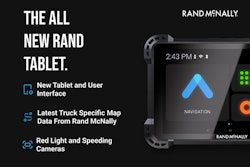The House’s Transportation and Infrastructure Committee on Oct. 22 pushed to the full House a six-year highway bill that would, if law, require FMCSA to remove carrier rankings in the Compliance, Safety, Accountability program and require the agency to rework the program, among other trucking regulatory changes.
The long-term highway bill, dubbed the Surface Transportation Reauthorization and Reform Act, is a $325 billion bill and could be the groundwork for Congress’ longest highway funding measure since 2009’s SAFTEA-LU and the first multi-year bill since 2012.
The Senate passed a long-term bill, the DRIVE Act, at the end of July that included similar trucking policy changes. There are differences between the two chambers’ bills in whole, however, meaning if the full House does clear the bill, the two chambers will have to work out any differences and bring a new bill to a vote.
Following nearly six hours of hearing proposed amendments to the Oct. 14-released legislation, T&I Committee Chairman Bill Shuster (R-Pa.), announced the bill’s “favorable referral” to the full House of Representatives mid-afternoon Oct. 22.
The 543-page legislation would, if enacted as-is, require the DOT to remove from public view data and carrier rankings in CSA’s Safety Measurement System BASICs until FMCSA can determine a course of action to correct the data and analysis issues that plague the system.
The legislation also would, like the Senate bill, allow states to enter into agreements to allow CDL holders between 19 and 21 — who are currently restricted to intrastate driving only — to cross state lines. And, again like the Senate bill, it would allow carriers to use hair tests to satisfy driver drug testing requirements. Currently, federal law requires drug screening to involve urine tests.
It also would require FMCSA to further study rules and their impact on carriers prior to implementing them, as well as establish minimum hiring standards for those hiring carriers. This provision follows a standalone bill introduced earlier this year in the Senate that called for the same “interim hiring standards” to be adopted.










